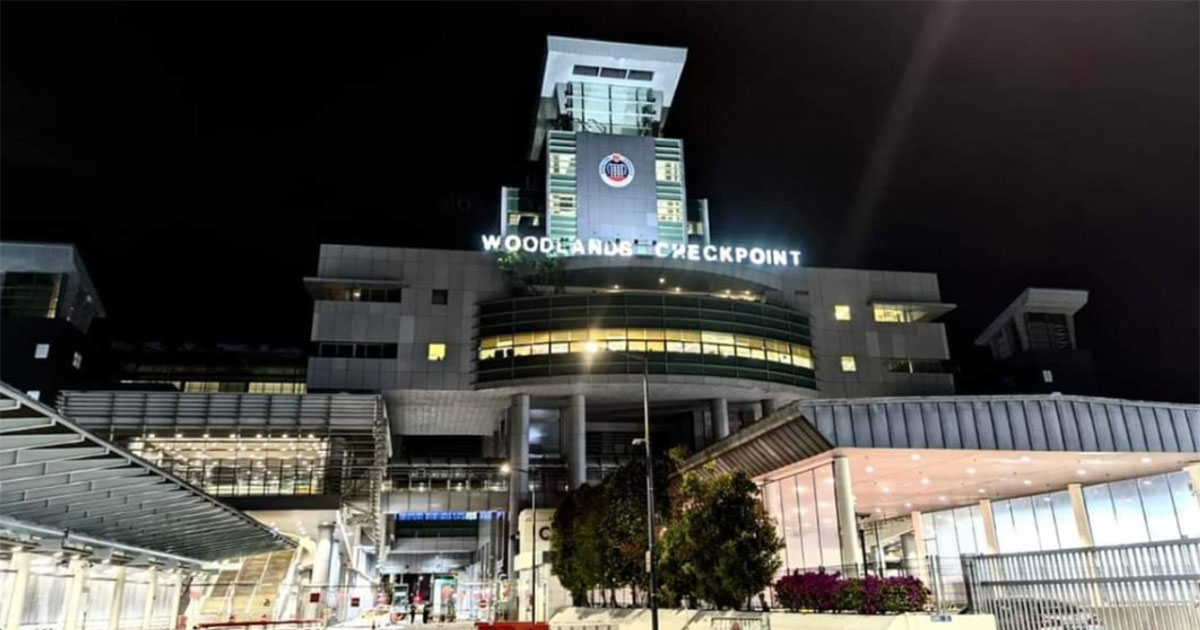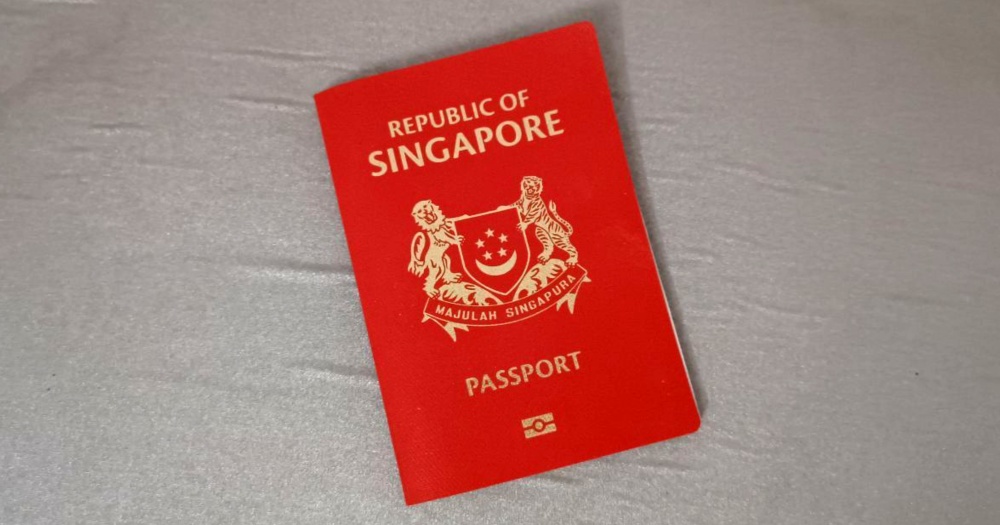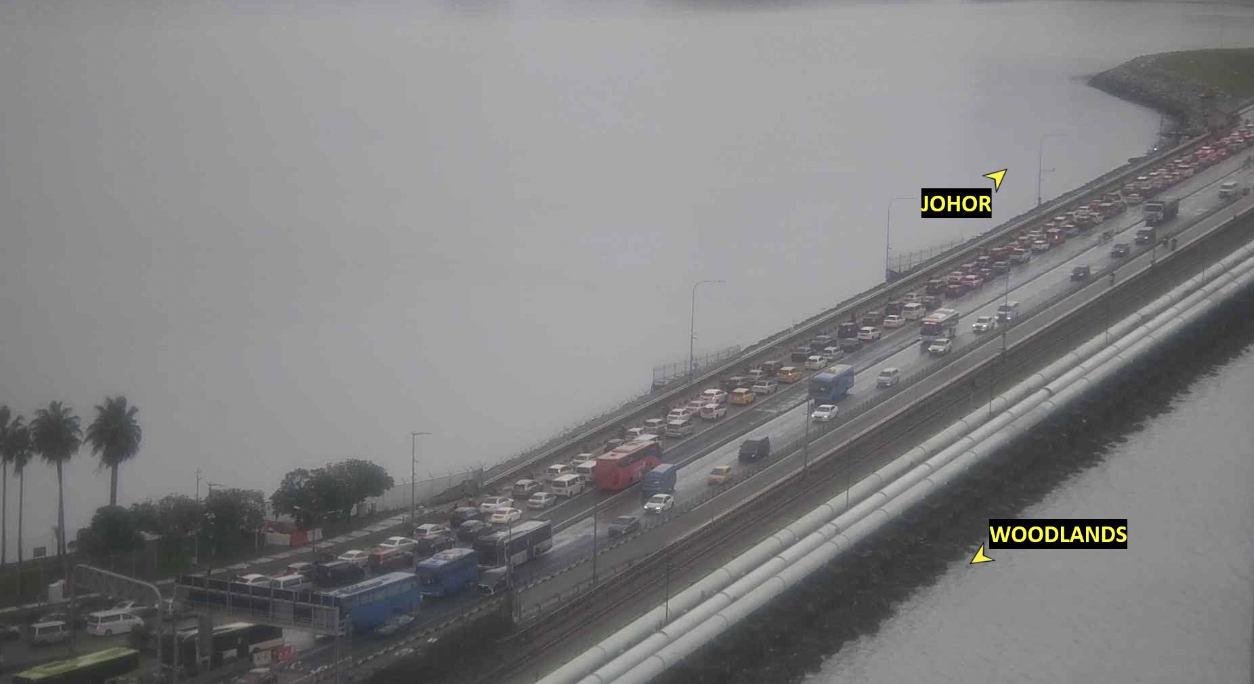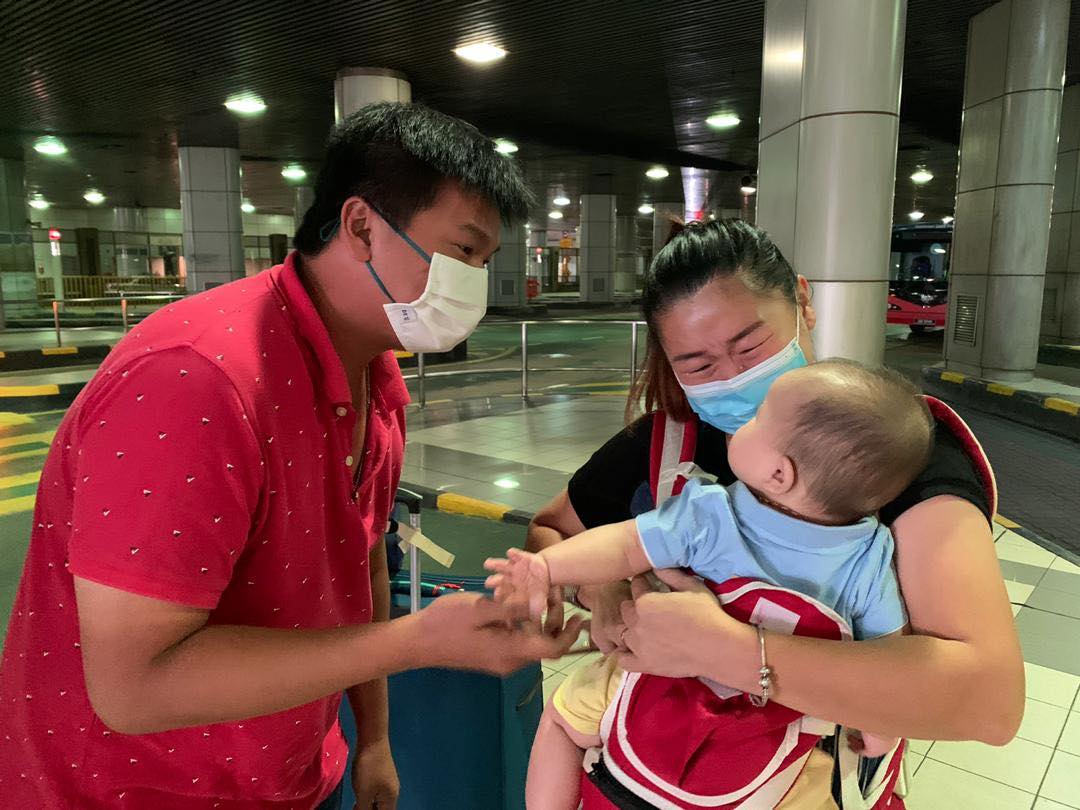27-year-old Aloysius Thum’s job is probably one of the most misunderstood out there.
As an Immigration & Checkpoints Authority (ICA) officer at Woodlands Checkpoint, he gets a lot of weird questions.
Does he spend all day stamping passports?
Or foiling smuggling attempts?
And just when is the best time to travel to Johor Bahru (JB)?
Speaking to Mothership, Thum sheds light on what he actually does.
 Photo by ICA
Photo by ICA
Serving the nation
But first, why sign on in the first place? And why ICA?
“When we think about signing on, usually people think about the army and police,” Thum said.
He had planned to apply for a scholarship all along in order to gain financial independence. At first, being a science student, he intended to pursue a career in engineering.
But his time in National Service — where he served as a commando — helped him “realise his purpose, which is really about public service”.
This, along with his past experience in the St. John’s ambulance brigade, inspired him to apply for the Ministry of Home Affairs Uniformed Scholarship.
When deciding on a course, he selected one that would best equip him to fulfil his passion for Singapore’s safety and security: Public Policy and Global Affairs at the Nanyang Technological University.
“It was a leap of faith,” the science student admitted. “The social sciences were a bit of a mystery to me, but I was very excited about it.”
And as for why ICA — “When you think about it, we have the world’s best airport, the world’s busiest land checkpoint, one of the world’s busiest ports,” he explained.
“There’s so much potential for officers to grow and develop a skill. So that really spoke to me.”
 Image via ICA
Image via ICA
Not a lot of stamping passports
One misconception that people often have about his job is that as an ICA officer, he just spends his days “stamping passports”.
But the reality is that many years ago, Singapore did away with the physical stamping of passports, replacing the system with digital visit passes.
The more important question, however, is this: Why stamp passports in the first place?
“The main reason why we stamped passports was to acknowledge that we accomplished our security checks, rather than the act of stamping itself,” he explained.
 Image via ICA
Image via ICA
That’s something that ICA officers actually still do: profiling and protective security, in proper terms.
“We are trained to look out for anomalies,” Thum explained. There is always a baseline with a profile’s travel habits — how long they are spending in the country, for instance — and ICA officers can detect when a certain profile is deviating from the baseline.
Apart from manual profiling, ICA also taps on technology to do more advanced targeting.
“So [we can assess] how often you travel, for example, or who you travel with,” he said.
“ICA collects a lot of data. Through AI, we are able to use all this data to get a risk assessment of individuals.
And that has actually really helped us in our profiling efforts as well.”
More than just security threats
There’s also more work than just dealing with overt security threats.
Working in Woodlands Checkpoint, a big part of his work is assessing day-to-day operations and making sure the flow of travel is as efficient as possible — for instance, by optimising road design and road use to ensure traffic goes through as smoothly as possible.
“So usually when we talk about [security], we talk about smuggling, we talk about drug cases,” he said.
“But why are we so hard up on efficiency?”
Thum gives the example of the Itaewon crowd crush of 2022.
“At Woodlands, we clear more than 250,000 — even 300,000 travellers a day.
Travelling to JB using Woodlands during a peak period…it is pretty bad.
And as much as it is an efficiency concern, it’s also a safety concern.”
 Image via ICA
Image via ICA
It’s also a security concern, because with hundreds of thousands of people moving through the checkpoint — “if anything happens, there goes my whole checkpoint”.
Stepping up on efficiency also allows room for ICA to focus on security.
An example is ICA’s New Clearance Concept (NCC).
Once upon a time, ICA officers used to stamp passports from their individual booths.
But under NCC, officers’ roles have shifted from overlooking just one lane manually — to looking at between four and nine automated lines.
Not only that, but they’re able to do more thorough, targeted checks using the data that ICA collects.
“So by that, we are actually upskilling our officers…and it is an efficiency improvement. Because it shrinks our manpower needs, and steps up our risk assessment.”
A unique opportunity
It’s a meaningful job, but it’s not always easy.
One thing that took getting used to was that he had to lead a team of older and more experienced staff.
While valuable, this was also challenging.
“When I came in, there were some people that were my parents’ age, some of them even my grandparents’ age,” Thum said, “and they have so many years of experience under their belt.”
The question was then this: how could he, despite being the youngest and least experienced, best make use of their experience and skills in order to make critical decisions, as their team leader?
The answer lies in not just what he learnt at school, but also in the job rotations that ICA officers go through.
All of this, Thum explained, gives him “a broader view” that allows him to take a step back and assess the situation as a whole; consequences that may not just affect the officers themselves, but the larger operations as well.
Not only that, but as a young team leader, he had to learn to understand his officers’ individual life situations.
“I have officers telling me that they have to juggle [work] with their kids, that they’re looking at their loans and their finances,” he recalled.
“And I’m not married, I don’t have kids. So how do I put myself into their shoes? It’s challenging…but I learned a lot from my officers.
“And it is rather fulfilling and humbling, that they are willing to take you as a listening ear.”
Worth the tough times
The other challenge, of course, is dealing with the perennial question: why does there always seem to be a traffic jam at Woodlands Checkpoint?
“I think I’m the go-to guy whenever [my friends] want to know when is the best time to go to JB,” he quipped.
“And the truth is, whenever you feel like going, that’s the worst time to go. Because everyone thinks the same way.”
Traffic congestion between Malaysia and Singapore has been a longstanding issue, and it’s a natural result of people living, working, and holidaying — especially when the exchange rate dips — on both sides of the Causeway.
While officers like Thum constantly work to improve efficiencies in traffic flow, it does get tiring.
The border closure of the Covid-19 pandemic is something that he looks back on during the tougher days.
“Woodlands was a dead town. There was no one around. And pretty ironically, people were saying they would rather have people coming through the checkpoint. Because it was such a sad scene, right?
“And when we first reopened, the media captured a lot of touching moments of people reunited, people finally able to see their loved ones.”
 Image via ICA
Image via ICA
These things are reminders that he often shares with his team. That the work they do is important, valuable, and worth the tough times.
But what about him personally? What keeps him going?
“For me, most importantly, [it’s that] my loved ones — the people I care for — are safe, because of the work I do,” he said.
“That brings me a lot of meaning and purpose.”
Writing this ICA-sponsored article made this writer a bit more appreciative every time she travels to JB.
Top image from Onemotoring/LTA and ICA
If you like what you read, follow us on Facebook, Instagram, Twitter and Telegram to get the latest updates.

